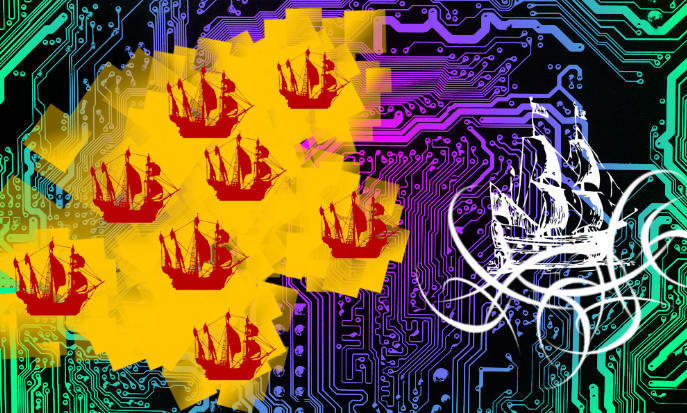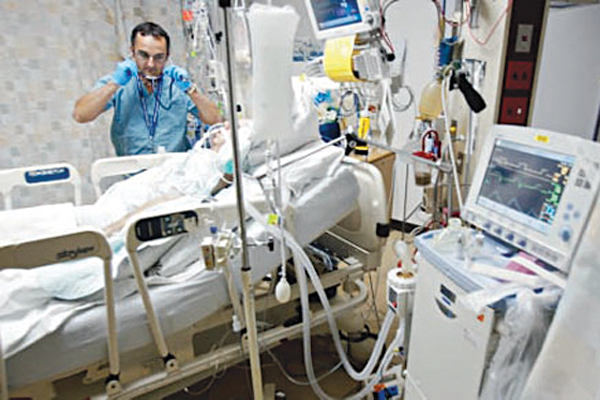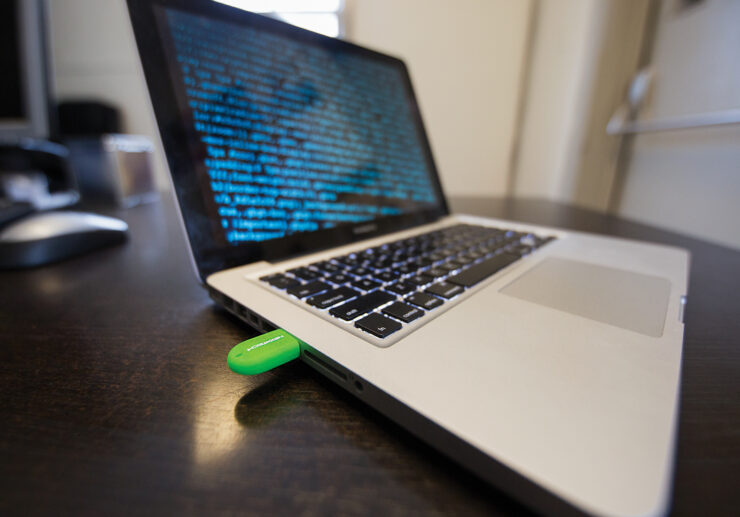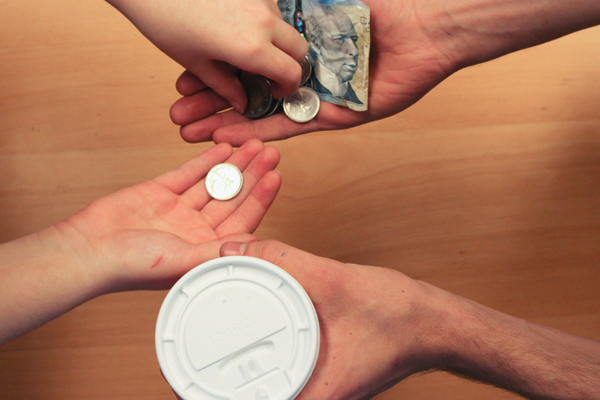Are we safe on the web?
Sofia Hashi | Fulcrum Staff
Illustration by Mathias MacPhee
TECHNOLOGY. IT ALLOWS us to microwave food, register for classes online, and connect through Facebook. Increased productivity, unprecedented efficiency, and global connectedness can all be attributed to technology, whose ever-evolving nature means that we’re constantly exposed to an endless stream of new gadgets—flexible smartphones anyone? While the advantages of living in the Information Age are awesome, somewhere along the way we seem to have forgotten about the negatives. Mainly how there’s a lack of security. Just ask anyone who’s been hacked. The downside to getting digital can be disastrous.
Ahmed Al-Khabaz, a 20-year-old computer science student, was expelled from Montreal’s Dawson College in November for allegedly hacking into the school’s computer system. Al-Khabaz stumbled on what he thought was a major security flaw that jeopardized students’ personal information and notified authorities immediately. However, Al-Khabaz continued to scan the network looking for more security issues, and for this he found himself expelled.
While the hacking community was indignant over the college’s decision to expel Al-Khabaz, and reports of the student receiving job offers from high-end computer technology firms are numerous, this isn’t an issue about whether or not Al-Khabaz should or shouldn’t have been expelled. This is an issue of safety—namely our cyber safety.
Those two words may induce memories of your parents and teachers lecturing about AOL chat rooms, but you won’t be rolling your eyes anymore when your computer gets hacked.
Let’s take a moment to think about all the information we post online. Photos, addresses, bank account numbers, resumés, the list goes on. The places where we recklessly post our most private information may seem safe, but they’re far from it.
Mat Honan, an American tech journalist for Wired magazine, discovered he’d been hacked and chronicled his experience.
“In the space of one hour, my entire digital life was destroyed. First my Google account was taken over, then deleted. Next my Twitter account was compromised and used as a platform to broadcast racist and homophobic messages,” said Honan in an online article for the magazine.
What’s worse: because Honan’s information was stored on the cloud, his iPhone, Macbook, and iPad were all compromised. His hacker was able to piece together information by exposing disconnects in data management policies between companies. For instance, Amazon gave the hacker four digits from his credit card after a simple phone call. Armed with that information, the hacker then went to Apple customer service, who accepted those four numbers as enough accreditation to reset Honan’s Apple ID, which was incidentally linked to his Gmail account. And the list goes on.
How do we fight against these unseen criminals? Besides demanding companies to have stronger and more efficient technological security systems, the most obvious answer on a personal basis is passwords.
However, the age of passwords might be over. With software emerging designed to crack difficult codes using algorithms, no password—however long and complex it might be—is 100 per cent safe.
So, what do we do? The majority of tech experts advise not using simple passwords, or to reuse them and to have a separate email linked up to your accounts, or even better a separate email per account. By not daisy-chaining all your accounts to one point of access, you’ll be safer.
For as long as technology exists, hacking will too. The moral and ethical questions surrounding hackers definitely shouldn’t be pushed aside, but the more pressing talk we need to have right now is about our safety. Be careful, and try not to make it too easy for the hackers.





